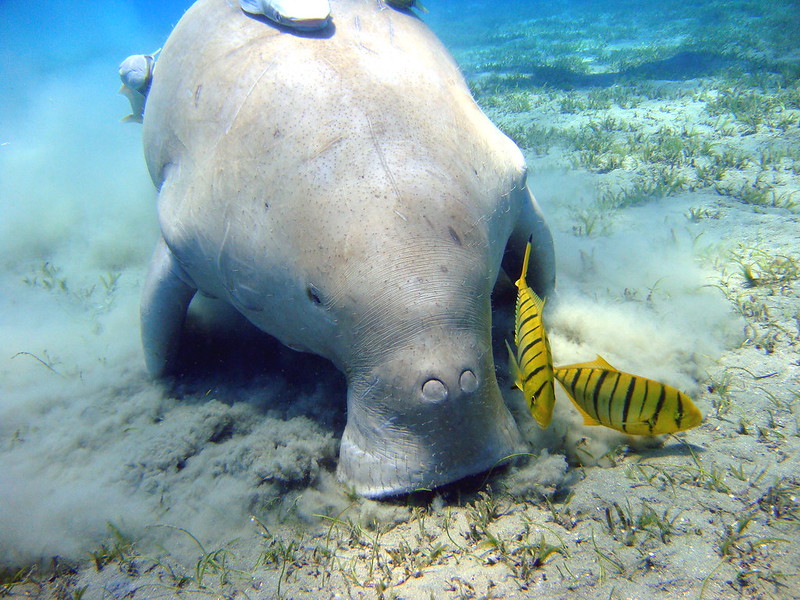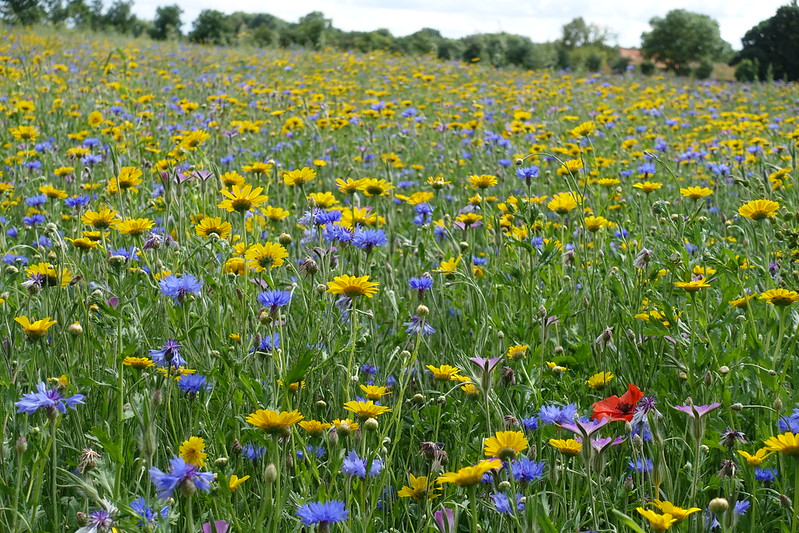Conservation
Invasive ferret populations are now under control on Rathlin Island. A five-year, £4.5 million project was launched in 2021 to remove the species from Rathlin after conservationists raised concerns about their impact on resident ground-nesting bird populations, including puffins, razorbills, kittiwakes and fulmars. The impact of ferrets includes predation on eggs and chicks, as well as adult birds, with one ferret having killed 27 adults in only a few days. The team behind this project deployed traps to capture the predators and have successfully controlled their numbers, whilst attempts to reduce brown rat populations have been ongoing since September last year.

Diminishing sea-grass beds in Thailand are driving Dugong population decline. The alarming increase in emaciated dugong deaths along Thailand’s Andaman coast prompted scientists to investigate the reasons behind their decreasing populations. Last year’s losses were more than double the annual average recorded between 2019 and 2022, and research has revealed that at least 40% of these deaths were likely due to starvation as a result of seagrass die-off; the species primary food-source. As a result of this, Dugongs need to venture into deeper waters to find food, where they can be killed by boat strikes and fishing bycatch. Marine Ecologist Petch Manopawitr stated that if mortality rates continue, Dugong are likely to be extinct in just a few years.
Butterfly Conservation have renewed the lease on a vital nature reserve on the South Downs. Magdalen Hill Down, owned by The Church of England, has been managed by Butterfly Conservation for three decades, during which they have transformed it from scrub and farmland into one of Hampshire’s richest chalk grasslands. It is now one of the top ten sites in the country for butterflies and is home to over 30 different species, including the Adonis Blue, Green Hairstreak and crimson Cinnabar. Official figures released last week revealed that 2024 was one of the worst years on record for UK butterfly populations, so it is as vital as ever to provide these habitats. The renewed agreement with the Church Commissioners collates two previous leases and allows Butterfly Conservation to continue its conservation work across the 46-hectare site.
Environment
Northern Ireland’s richest nature sites require urgent action. The Office for Environmental Protection has revealed that the laws put in place to identify and manage protected sites in Northern Ireland is falling short. As a result, the condition of these priority conservation sites is deteriorating, with the number of sites in ‘favourable condition’ having declined from 61.7% in 2008 to just 51.5% in 2024. The report concluded that improving the protection and preservation of nature requires better implementation of existing laws for priority conservation sites, as the legal framework itself is not the primary issue.

A recent report by the British Ecological Society has evaluated the impacts of regenerative agriculture. The study determined that while regenerative practices can enhance soil health and biodiversity, these practices alone are unlikely to be sufficient. Instead, the research indicates that they are most effective when integrated within a comprehensive system that prioritizes minimizing soil disturbance and bare soil, increasing farm diversity, incorporating livestock, and utilising nature-based methods in place of synthetic inputs. Although the report’s authors emphasise that a whole-system approach yields the most significant benefits, they also encourage farmers to adopt even a few of these practices.
Over 125,000 wildflowers have been sown across Cumbria in two years thanks to Cumbria Wildlife Trust. With the help of thousands of volunteers, they have also restored 159 acres of grasslands, eight acres of hay meadows, and planted 16,000 plants in a variety of sites around Kendal and Milnthorpe. It is hoped that the restoration of these rich habitats will support a wealth of pollinating insects and increase the areas biodiversity.

Policy
Conservationists raise concerns about the proposed budget cuts for the Darwin Plus fund. The UK’s Overseas Territories are home to over 32,216 native species, which represents 90% of all British biodiversity, including the rare Wilkins’ Bunting and endangered St Helena Plover. Many of the conservation projects undertaken across these sites have only been possible due to the government’s Darwin Plus scheme, which commits £10 million annually to support a host of critical conservation projects in these territories. The UK government is set to decide on the future of this vital funding as part of their summer Spending Review, and leading UK charities are urgently highlighting that any cuts to Darwin Plus would have catastrophic effects on the future of the flora and fauna found in these unique habitats.

